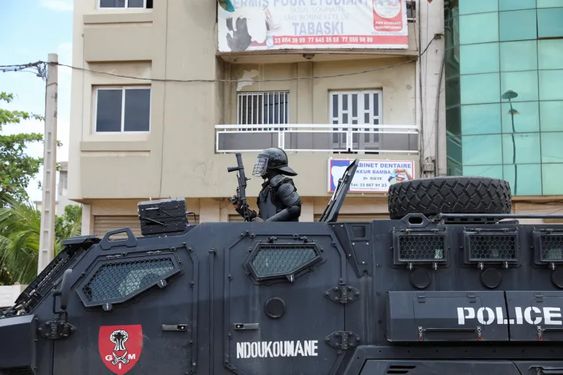Africa
Senegal suspends TikTok amid crackdown on dissent

Senegalese authorities have blocked access to the social media app TikTok amid turmoil, just days after dissolving the opposition party.
Senegalese authorities have barred access to the social media app TikTok, broadening a crackdown on dissent only days after dissolving the major opposition party and detaining its head.
“The TikTok application is the social network of choice for ill-intentioned people to spread hateful and subversive messages threatening the stability of the country,” said Moussa Bocar Thiam, minister of communications and the digital economy, in a statement on Wednesday.
A power battle between PASTEF party head Ousmane Sonko and President Macky Sall has resulted in violent demonstrations at times, undermining Senegal’s reputation as the most stable democracy in West Africa.
During the previous three years, the area has seen a series of military coups, including one last week in Niger.
‘Democratic crisis’
According to Dakar resident Abdou Dione, the state should not stop TikTok only because of bad characteristics.
“It’s an app where you can learn a lot as well as see vulgar things,” Dione explained.
According to Papis Gaye, young street vendors use programmes like WhatsApp as part of their internet sales.
“So cutting off the internet means prohibiting us from selling,” Gaye explained.
“I’d have to try the VPN just to connect, but it’s a pain.” In the end, you’re exhausted and discouraged.”
According to political expert Adjaratou Wakha Aidara, Senegal is in a “democratic crisis.”
“This is the first time that we don’t know who will run six months before elections,” she told Al Jazeera.
“The future of democracy in our country is dubious. We have a young populace that craves change and expresses themselves through social media and on the streets.”
‘Extremely serious measure’
Sonko was arrested on Saturday and charged with preparing an insurgency and other charges.
Opposition supporters have accused Sall of filing accusations in order to exclude Sonko from a presidential election scheduled for next year.
The government denies this and blames Sonko and PASTEF for inciting unrest.
On Monday night, two people were killed in opposition rallies in the southern city of Ziguinchor, where Sonko is mayor, and two people were burned to death on Tuesday when attackers threw petrol bombs into a passenger bus.
“The government’s decision to dissolve PASTEF violates freedom of expression, association, peaceful assembly, and democratic participation,” Human Rights Watch said in a statement Tuesday evening. It urged authorities to reestablish the party and re-establish the internet.
“The dissolution of a political party is an extremely serious measure that should only be used as a last resort… in accordance with democratic principles and respect for fundamental rights,” the International Federation for Human Rights said in a statement on Wednesday.
Amnesty International has also condemned the internet restrictions.
Riots erupted across Senegal in June, killing at least 16 people after opposition activist Sonko was sentenced to two years in prison for immoral behaviour towards people under the age of 21. He has yet to begin serving his sentence.
Sonko, who denies any guilt, had pushed his supporters to go to the streets at the time.
Sall ended months of suspense when he said he would not run for a third term as president next year, which critics said would be unlawful. His party has yet to choose a candidate for the election.
SOURCE: AL JAZEERA AND NEWS AGENCIES
